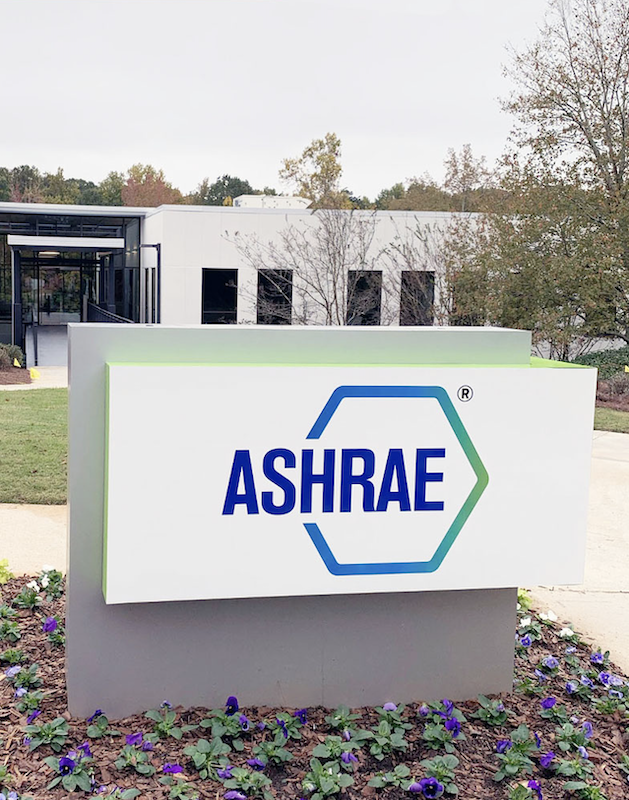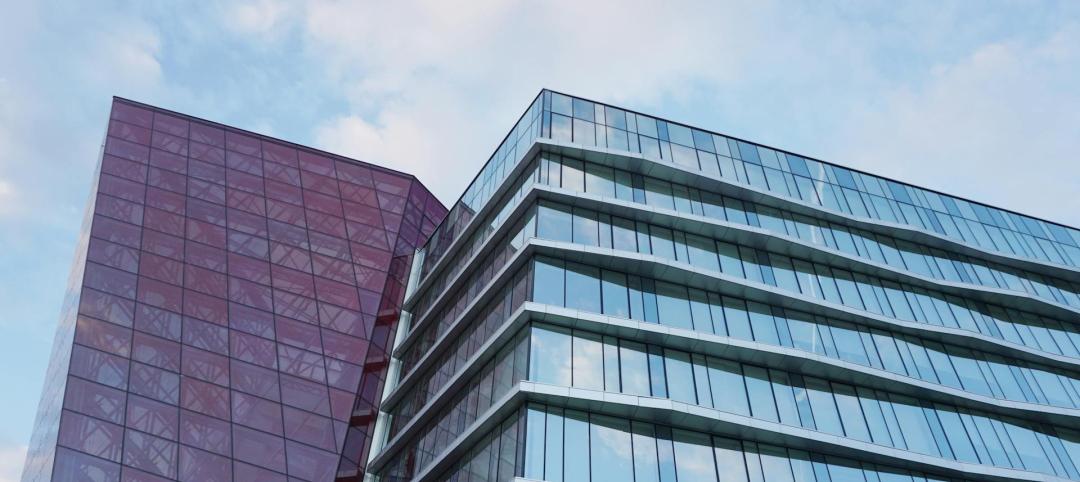This month, ASHRAE’s new global headquarters became fully net-zero energy upon the installation of its photovoltaic system.
This 66,700-sf, three-story building, which previously housed an information management company Recall, was originally built in 1978. It’s located in Peachtree Corners, Ga., along Atlanta’s Technology Parkway corridor, and 10 miles from ASHRAE’s previous headquarters. The building’s transformation, which began in January 2020, is “a living showcase of what’s possible,” said Charles Gulledge III, PE, ASHRAE’s 2020-2021 President. It might also serve as proof that net-zero energy can be more than an aspiration for existing buildings.
The renovation and retrofit used innovative technologies and sustainable materials to reduce energy use, water consumption, and the building’s carbon footprint. Skanska, the project’s Construction Manager at Risk, completed the renovation during the coronavirus pandemic without having to shut down. ASHRAE’s 110-person staff started moving into the building last October.
The net-zero-energy ready design exceeds ASHRAE’s own energy and indoor standards. (Even before the COVID pandemic, ASHRAE had planned to provide 30% more outside air to the renovated building than the required minimum ventilation rates from its own Standard 62.1.) The design targets LEED and International Living Future Institute zero energy certifications.
THE TECHNICAL BELLS AND WHISTLES
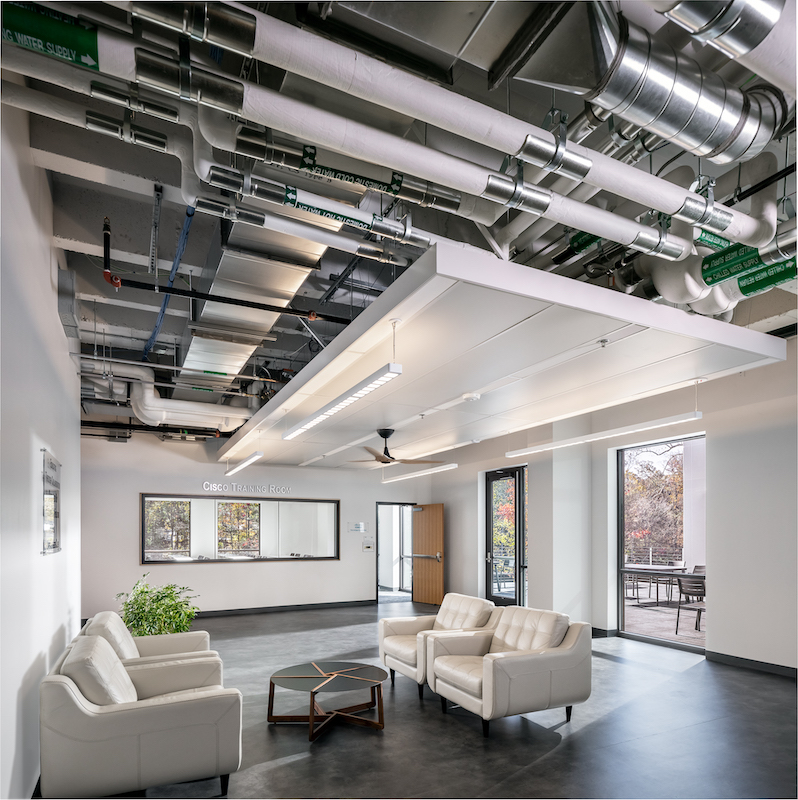
ASHRAE's headquarters is distinguished by a radiant ceiling panel system (above) and formidable mechanical room that includes four heat pumps.
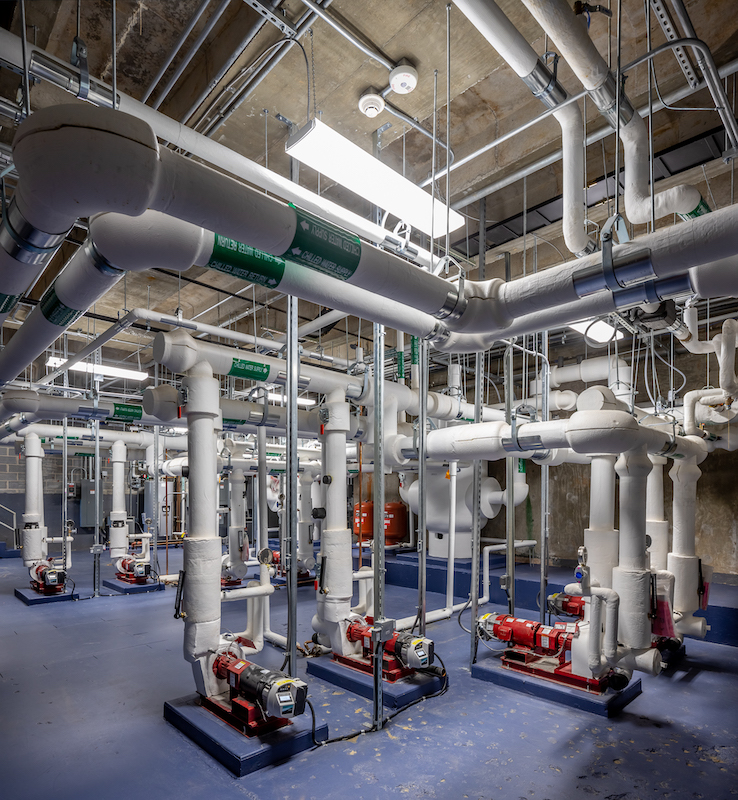
The new headquarters’ technical features include:
•A radiant ceiling panel system for heating and cooling, and a dedicated outdoor air system to enhance ventilation via overhead fresh-air distribution
•Six water-source heat pumps
•Demand-control ventilation for high-occupancy spaces
•Modeling Energy Use Intensity of 17 kBTU/sf/year
•On-site electric vehicle charging stations
•18 skylights and a reconfigured window/wall ratio, which at the work plane is 79.9%.
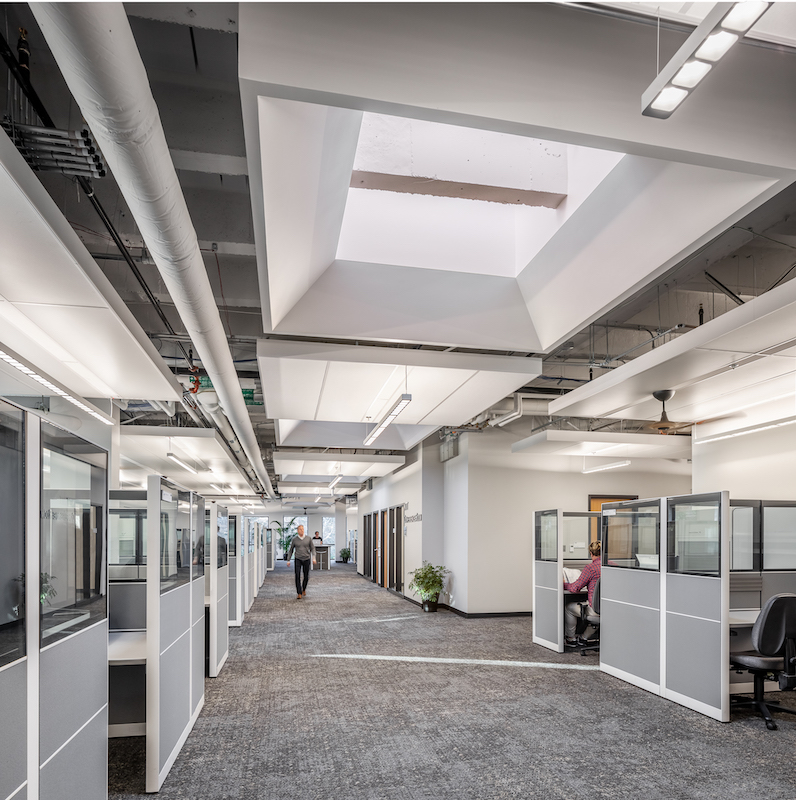
There are 18 skylights in the building (above), and dashboards throughout that relay information about the building's performance.
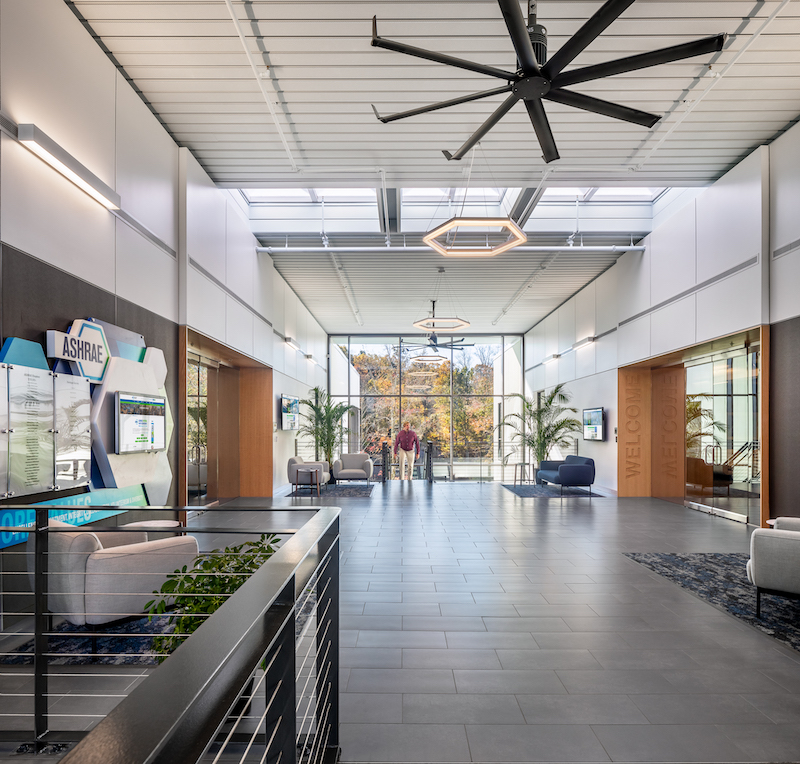
Among the headquarters’ digitally connected solutions are remote monitoring and analysis of building performance via online dashboarding, and an advanced Building Automation System that’s’ integrated with other systems. Advanced conferencing is designed to serve as a “digital lighting” teaching resource.
To help fund this $20 million project, ASHRAE raised $9.7 million from 31 corporate donors, which included gifts of equipment and services. ASHRAE members donated more than $500,000.
The project’s design team included McLennan Design, Houser Walker Architecture, and Integral Group. Collins Project Management managed the renovation, and Epsten Group was the Commissioning Agent.
Related Stories
Codes and Standards | Jul 8, 2024
New York State building code update would ban fossil fuels in new buildings
New York’s Building Code Council is set to include the All-Electric Buildings Act in its 2025 code update. The Act would ban natural gas and other fossil fuels in new buildings.
University Buildings | Jun 18, 2024
UC Riverside’s new School of Medicine building supports team-based learning, showcases passive design strategies
The University of California, Riverside, School of Medicine has opened the 94,576-sf, five-floor Education Building II (EDII). Created by the design-build team of CO Architects and Hensel Phelps, the medical school’s new home supports team-based student learning, offers social spaces, and provides departmental offices for faculty and staff.
HVAC | May 28, 2024
Department of Energy unveils resources for deploying heat pumps in commercial buildings
To accelerate adoption of heat pump technology in commercial buildings, the U.S. Department of Energy is offering resources and guidance for stakeholders. DOE aims to help commercial building owners and operators reduce greenhouse gas emissions and operating costs by increasing the adoption of existing and emerging heat pump technologies.
K-12 Schools | Apr 30, 2024
Fully electric Oregon elementary school aims for resilience with microgrid design
The River Grove Elementary School in Oregon was designed for net-zero carbon and resiliency to seismic events, storms, and wildfire. The roughly 82,000-sf school in a Portland suburb will feature a microgrid—a small-scale power grid that operates independently from the area’s electric grid.
Codes and Standards | Apr 12, 2024
ICC eliminates building electrification provisions from 2024 update
The International Code Council stripped out provisions from the 2024 update to the International Energy Conservation Code (IECC) that would have included beefed up circuitry for hooking up electric appliances and car chargers.
Sustainability | Mar 29, 2024
Demystifying carbon offsets vs direct reductions
Chris Forney, Principal, Brightworks Sustainability, and Rob Atkinson, Senior Project Manager, IA Interior Architects, share the misconceptions about carbon offsets and identify opportunities for realizing a carbon-neutral building portfolio.
Green | Mar 25, 2024
Zero-carbon multifamily development designed for transactive energy
Living EmPower House, which is set to be the first zero-carbon, replicable, and equitable multifamily development designed for transactive energy, recently was awarded a $9 million Next EPIC Grant Construction Loan from the State of California.
Sustainability | Mar 21, 2024
World’s first TRUE-certified building project completed in California
GENESIS Marina, an expansive laboratory and office campus in Brisbane, Calif., is the world’s first Total Resource Use and Efficiency (TRUE)-certified construction endeavor. The certification recognizes projects that achieve outstanding levels of resource efficiency through waste reduction, reuse, and recycling practices.
Legislation | Mar 21, 2024
Bill would mandate solar panels on public buildings in New York City
A recently introduced bill in the New York City Council would mandate solar panel installations on the roofs of all city-owned buildings. The legislation would require 100 MW of solar photovoltaic systems be installed on public buildings by the end of 2025.
Green | Mar 5, 2024
New York City’s Green Economy Action Plan aims for building decarbonization
New York City’s recently revealed Green Economy Action Plan includes the goals of the decarbonization of buildings and developing a renewable energy system. The ambitious plan includes enabling low-carbon alternatives in the transportation sector and boosting green industries, aiming to create more than 12,000 green economy apprenticeships by 2040.


